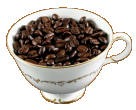Kopi Luwak Coffee Processing
Processing Kopi Luwak is such a unique method due to Civet, which is a local animal. They ingest fresh coffee berries, but they are not able to digest it. Thus, they defecate the seeds in their original form, which is in clumps. The locals are the ones that collect the beans from the droppings of the Civet. Then they clean, dry, roast, and then grind it to get the coffee powder.
There is an array of gourmet coffee available in the market these days, but Kopi Luwak is just outstanding. It doesn’t have the usual bitterness that other coffee possesses. It has been said that the bitterness is removed as it passes through the Civet’s digestive system. Also, Civet coffee has that sweetness to it that a lot of coffee lovers swear by. Such method of coffee processing as well as the superiority of the brew is the reason why it is the most expensive coffee worldwide. It has been like that for quite a while already.
The uniqueness of such coffee has required research in order to find out why this coffee has excellent quality. Research has it that endogenous secretions of Civet seep into fresh coffee berries eaten by Civet. These secretions have enzymes that are responsible for breaking down protein in the berries. This causes for free amino acids and less peptides, which means less bitterness. That is the main reason for the extremely unique flavor.
At first, a lot of researchers have been doubting its safety. It is because of the fact that fresh coffee berries swallowed by Civet pass through its digestive system, hence the possibilities of containing harmful organisms. This could be true. However, it has been established that the collected berries go through meticulous washing, drying and eventually roasting. These processes kill any harmful microorganisms. That being said, Kopi Luwak is very safe to consume.
Coffee processed in such way is very popular in Japan, USA and in Asia. It is available in many coffee outlets. It is also sold ready brewed in a lot of coffeehouses.
